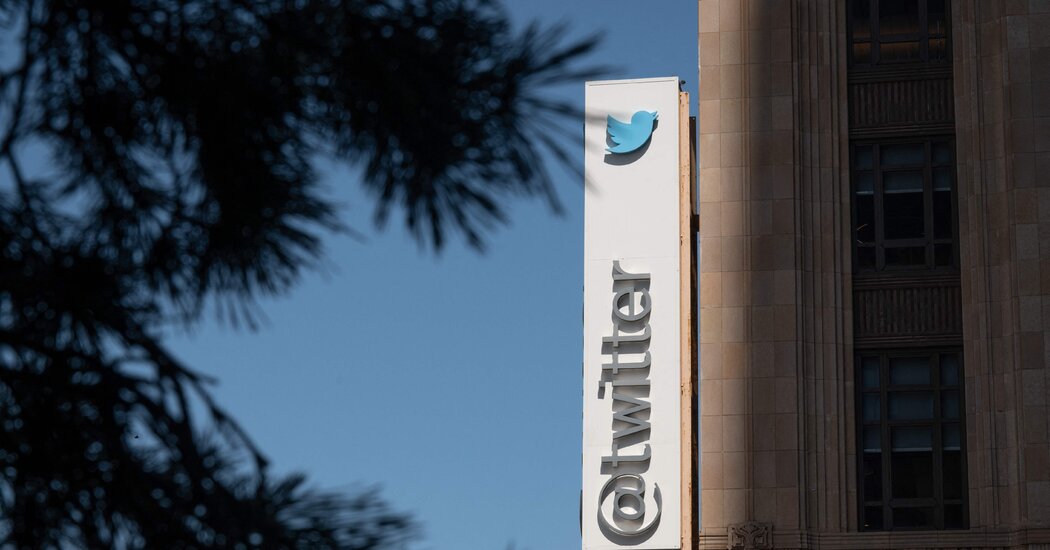Twitter said Tuesday it had sued the Indian government and challenged a recent order to remove content and block accounts in the country.
The charges were brought before the Karnataka High Court in Bangalore after the government threatened criminal action against Twitter executives if they did not comply with the order, the company said.
The company was given a deadline Monday to block dozens of accounts and messages within India. It complied, but then sought legal help.
The Indian government urged Twitter to follow the rules. “It is everyone’s responsibility to abide by the laws passed by the country’s parliament,” Ashwini Vaishnaw, the minister of electronics and information technology, said at a news conference on Tuesday.
Twitter’s lawsuit follows separate legal action by WhatsApp that is also pushing back against the country’s strict new rules regarding the internet, which WhatsApp has described as oppressive.
India’s Prime Minister, Narendra Modi, and his ruling Bharatiya Janata party have worked for years to control the power of the tech companies and more tightly control what is said online, and they have used the new information technology laws to curb dissent. † For example, Twitter has been told to remove content related to civil liberties complaints, protests, press freedoms and criticism of the government’s handling of the pandemic. WhatsApp had been told it would be required to make people’s private messages “traceable” to government agencies upon request.
In addition, the new rules required social media companies to hire Indian-based executives to ensure the companies comply with government requests to remove content and block accounts. If not, those executives could face criminal liability, with possible jail terms of up to seven years.
Twitter previously criticized the government’s tactics and called on it to respect freedom of expression. The company said India’s laws were being used “arbitrarily and disproportionately” against the company and its users, many of whom are journalists, opposition politicians and non-profits.
Last year, WhatsApp asked the Delhi High Court to block the enforceability of the rule on making people’s messages traceable. The government has said in relation to the WhatsApp case that the right to privacy is not “absolute and subject to reasonable limitations”.
That case is still pending.
The lawsuits are part of an ever-growing battle between the largest tech companies and governments around the world over which of them has the upper hand. Australia and the European Union have enacted or passed laws to limit the power of Google, Facebook and other companies over online speech, while other countries try to curb the companies’ services to suppress dissent and crush protests.
Experts said the Indian government’s move to force Twitter to block accounts and posts amounts to censorship, at a time when the government has been accused of weaponizing a loose definition of what content it finds offensive in order to go after critics.
In February 2021, the company permanently blocked more than 500 accounts and removed an unspecified number of others from view within India after the government accused them of inflammatory remarks about Mr Modi. Twitter said at the time it was not taking any action against the accounts of journalists, politicians and activists and said it does not believe the orders to block them are “in accordance with Indian law”.
In May of that year, police in India raided Twitter’s offices after the company decided to label tweets from Modi’s party politicians as “media manipulation.” Those tweets attacked opposition members who had used the platform to criticize Mr Modi and what they called his government’s stumbling response to the pandemic.
And in recent weeks, New Delhi police arrested Mohammed Zubair, a co-founder of a prominent fact-checking website, for a 2018 tweet that shared an image from an old Bollywood movie. The government said the image caused discord in the community after a Twitter account with only a few followers and just one tweet complained about it and tagged the Delhi police – before the account disappeared shortly after.
Last week, Twitter was ordered to block tweets from Freedom House, a US nonprofit that cited India as an example of a country where press freedom was on the wane.
“It’s telling how an international report on India’s press freedom rankings is met with censorship rather than debate and discussion,” said Apar Gupta, the executive director of the Internet Freedom Foundation. “It is an undemocratic and authoritarian response.”
Lawyers and technology experts say Twitter and other social media companies are caught between a rock and a hard place. They are obligated to obey the laws of the country, but they also challenge them to uphold free speech in the world’s largest democracy.
“I think they are losing battle because on the one hand they are taking the government to court, but on the other hand they have a tendency to give in,” said Salman Waris, a lawyer at TechLegis in New Delhi who specializes in in-laws. international technology law.
Mujib Mashal reporting contributed.

